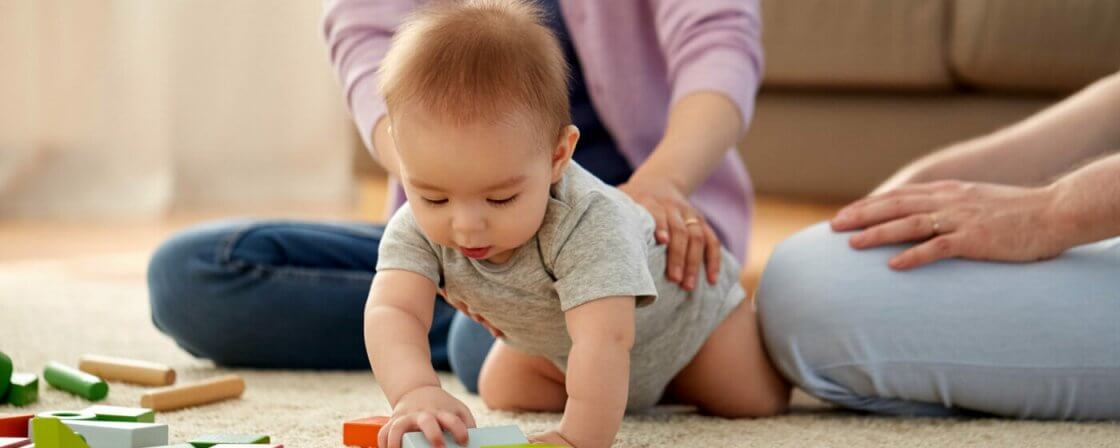Maternity and parental leave are two completely different institutes. They differ in everything – in the legislation on which they are based, in the length of the period, in the amount of the allowance and, to some extent, in the range of persons entitled to it. Maternity leave and parental leave are often confused, but while maternity leave is primarily intended for the period around childbirth, parental leave can last until the child is three years old. So let’s take it one step at a time.
Moreover, maternity and parental leave are not automatically linked, as the transition from maternity to parental leave is not an obligation. While maternity leave is taken by the mother, parental leave can be taken by the child’s father.
What is maternity leave?
By name, maternity leave is primarily for mothers. It is a benefit that is associated with a high level of pregnancy and childbirth and the period afterwards.
Are you solving a similar problem?
Solve a problem related to maternity leave
We will assess your case and draft a proposal for legal services to resolve it within 24 hours. If you then decide to entrust its solution in our hands, you have the drafting of the proposal free of charge.
I want to help you solve your problem
- When you order, you know what you will get and how much it will cost.
- We handle everything online or in person at one of our 6 offices.
- We handle 8 out of 10 requests within 2 working days.
- We have specialists for every field of law.
Only the mother who gave birth to the child is really entitled to it, at least until the end of the six-month period. After the end of the six-month period, the child’s father or the mother’s husband can also apply. Parents of adopted children are also entitled to maternity leave, which can of course be claimed by either parent.
Maternity leave is a sickness insurance benefit. To qualify, you must prove that you have been covered by sickness insurance for at least 270 days in the past two years. However, this can be met by different employers.
Even self-employed persons can qualify for maternity leave allowance. However, self-employed workers are only entitled to maternity allowance if they voluntarily pay sickness insurance. The amount of the allowance is then based on the set amount of monthly instalments.
If you would like to start maternity leave after your insurance ends, you will not lose your allowance. The basic protection period of 180 calendar days from the date of cessation of insurance (leaving employment) will apply. If your insurance lasted for a shorter period, the protection period will be equally short (e.g. if your insurance lasted 3 months, the protection period will also be 3 months).
When does maternity leave start?
Maternity leave starts 6 to 8 weeks before your due date. The mother can set her own start date at any time during this period. If she does not set a date, her maternity leave starts at least six weeks before the expected date of delivery.
Should the child be born prematurely, before the official legal start date, the maternity leave shall start at that moment.
When you start maternity leave, the so-called “support period” begins, during which you are also entitled to financial assistance.
How long does maternity leave last?
Maternity allowance is paid:
- 28 weeks for the birth of one child
- and 37 weeks for the birth of two (twins) or more children.
The length of maternity leave after childbirth can be 20-22 weeks (longer if you have more than one child) and therefore depends on when the expectant mother started her leave.
How much maternity leave will you be entitled to?
In the Czech Republic, maternity and parental leave are financially supported by different benefits, with the amount of maternity pay depending on previous earnings, while parental allowance is fixed.
The father of the child can also take maternity and parental leave if he meets the legal conditions.
Maternity allowance, properly called maternity allowance, is paid from sickness insurance and its amount depends on previous earnings. The basic rate is 70 % of the reduced assessment base. This is based on average daily earnings, to which three reduction thresholds are applied in turn, which may be set differently each year.
Not all mothers are automatically entitled to maternity allowance – they must have been insured for at least 270 days during the previous two years.
Where do I apply for maternity leave?
Maternity leave is paid by the Czech Social Security Administration. The application is made on a form issued to the mother by her attending physician – gynaecologist. The doctor also determines the date of delivery, which determines the possible start of maternity leave.
The woman then forwards the form to her employer, who forwards it to the relevant district social security administration. the self-employed then submit the application themselves.
Transfer from maternity to parental leave
If your maternity leave is coming to an end, stop by the Social Security Office to get a Certificate of Entitlement to Benefits Affecting Entitlement to and Amount of Parental Allowance. You will then send a claim for parental allowance to the Employment Office.
If the end of maternity leave and the transition to parental leave would also mean a change in carer, this must also be reported to the health insurance authority. In this case, the employer fulfils the notification obligation for those who are employed.
Maternity allowance can be combined with parental allowance, but only after the end of the period of maternity allowance.
Tip for article
Parental leave is an important period of time that serves to deepen the care of the child. The employee is entitled to take it until the child is 3 years old. We’ve written up all the essentials about parental leave in our separate article.
Return to work after maternity leave
If you return to work after maternity leave, your employer is obliged to reinstate you to your original job and workplace. If, for example, your original job has ended or the workplace has been closed down, your employer can reassign you to another job, but to the type and location agreed in your employment contract.
Returning to work after maternity leave
Finally, we will also mention the opposite and, of course, less frequent situation, i.e. the transition from parental leave to maternity leave, i.e. the situation when you are on parental leave with your older child and you are expecting his/her younger sibling. The following options are available to you before you next take maternity leave:
- start work until your next maternity leave starts,
- ask your employer for unpaid leave (but there is no legal entitlement),
- if you have a medical reason (e.g. for a high-risk pregnancy), you can take temporary sick leave.
Summary
Maternity leave is for mothers (or other authorised persons) to care for a newborn baby and usually lasts 28 weeks. During this time, maternity pay is paid based on previous earnings and sickness insurance. After maternity leave, parents can move smoothly to parental leave, which can last until the child is three years old, with parental allowance paid. Eligibility for and the amount of benefits are affected by length of employment, the amount of insurance and other conditions set by law.
Tip for article
Maternity leave should allow mothers to rest and recover after giving birth. But sometimes there is no alternative and, for example, the financial situation, a promising career or an agreement with the dad who wants to stay at home with the baby, will make the new mother return to work. We’ve discussed what it’s like to earn extra maternity pay and what you can do to avoid losing your entitlement to maternity pay in our article.
Frequently Asked Questions
How long does maternity leave last and how does the length of maternity leave differ for multiple children?
Maternity leave is normally 28 weeks for the birth of one child and 37 weeks for the birth of two or more children. The length of maternity leave can also be affected by when a woman starts maternity leave – usually 6 to 8 weeks before giving birth.
When do I start maternity leave and how long is the maternity period before giving birth?
You can start maternity leave 6 to 8 weeks before the expected date of delivery. The specific date is up to the mother. If the birth occurs earlier, maternity leave starts automatically on the day of the child’s birth. This is also the start of the so-called ‘support period’ during which maternity allowance (maternity allowance) is paid.
When does maternity pay arrive, who pays maternity pay and when is maternity leave paid?
Maternity pay (PPM) is not paid by the employer, but by the Czech Social Security Administration (CSSA). The money is usually paid monthly in arrears, similar to sickness benefits. The employer simply forwards the application to the relevant Social Security Office. If you are self-employed, you make the application yourself. So-called “maternity leave” is not paid out as sick leave; the money is always due from sickness insurance only.
How to arrange maternity leave and at which office is it dealt with?
The procedure is simple:
-
The gynaecologist issues a form Application for Maternity Cash Assistance.
-
The employee forwards the form to her employer, who forwards it to the Social Security Office.
-
The self-employed woman sends the form to the Social Security Office herself.
The Labour Office does not usually intervene in the maternity leave process – it deals with parental allowance.
What happens at the end of maternity leave and how does parental leave follow?
The end of maternity leave occurs after the relevant weeks have elapsed. The parent can then ask the employer to take parental leave and apply for parental allowance at the Labour Office.
After the end of maternity leave, the employer is obliged to reinstate the mother to her original job and workplace. The transition to parental leave is not an obligation, but most parents use it in practice.




